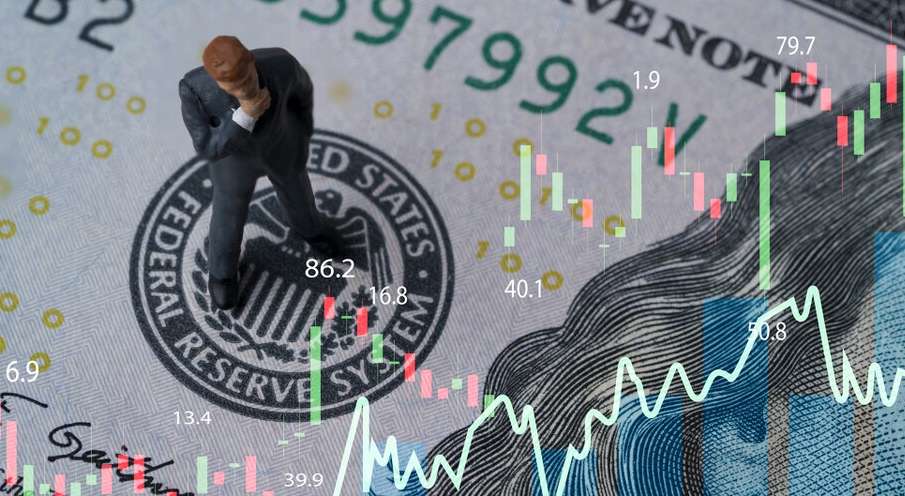Sticky Inflation Challenges for the ECB: Lagarde's Dilemma
Advertisements
The financial landscape of the Eurozone is currently in a state of flux, as economists and analysts closely monitor the evolving dynamics between the Euro and the U.S. dollar. As it stands, there is a general consensus among economists that by the end of the year, the exchange rate of the Euro against the dollar will hover around $1.05, with a foreseeable fluctuation between $0.98 and $1.10.
At the heart of the matter lies a growing concern over inflation, prompting many to question whether the European Central Bank (ECB) will need to pause or cease its interest rate cuts come spring. The situation is further complicated by the sustained strength of the labor market and the ongoing tensions in trade disputes, casting a shadow over any expectations for economic growth in the near future.
According to a recent survey conducted by Bloomberg, the basic expectation is for the ECB to embark on a sequence of four interest rate cuts, each amounting to 25 basis points, in 2025. Respondents unanimously agree on impending cuts next week and in March; however, viewpoints diverge when contemplating the April meeting as uncertainty looms over where the deposit rate—currently at 3%—might settle by year’s end, with estimates ranging between 1.25% and 2.5%.
Many analysts remain skeptical, as they perceive greater risks associated with inflation rates that have already surpassed the ECB's target of 2%. Factors contributing to this unease include stubborn service sector inflation and cyclical trade conflicts, which collectively indicate that the current economic recovery might not be robust enough to stave off disappointment in the coming years.

Policy makers have thus far maintained their stance without major alterations. During this week’s discussions in Davos, they reiterated their commitment to cutting rates further, fueled by expectations that inflation will stabilize around 2% in the upcoming months. They are also encouraged by the lack of significant hostilities directed towards Europe by the U.S. presidency, making it less likely for their strategy to be adjusted prior to forthcoming quarterly forecasts that may echo shifts in U.S. economic policies.
Piet Christiansen, the Chief Strategist at Danske Bank, offered insights into the anticipated decisions. He noted that both January and March will likely see predetermined actions, yet approaching neutral interest rates could ignite vigorous debates. The April meeting, in his view, could become a pivotal moment.
A striking 71% of survey respondents indicated that a neutral interest rate, which neither curbs nor stimulates demand, falls somewhere between 2% and 2.25%. Although not an overwhelming majority, many believe this milestone will be reached by June. The economists’ median prediction places the rate at 2%, relatively near the lower edge of the neutral domain. Present market conditions foresee three rate cuts by that point, totaling four before the calendar year closes.
David Powell, a senior economist in the Eurozone, projected that the ECB would enact a total reduction of 100 basis points throughout the year. However, he stressed that the pace of easing could shift to a more cautious cadence following March.
Even before turbulence anticipated from the U.S. presidency, the economic outlook for the Eurozone appeared murky. Approximately two-thirds of respondents speculated that the ECB would refrain from offering a formal guide regarding the intended levels for borrowing costs.
Industry veteran Claus Vistesen, Chief Eurozone Economist at Pantheon Macroeconomics, added another layer of insight: “The ECB's most significant challenge is that they’re currently making policy decisions under the looming influence of the U.S. president, whose whims could drastically alter the fundamental landscape.”
Indeed, the threat imposed by U.S. policies is perceived as one of the most severe risks to economic growth across the Eurozone’s 20 member states. Former Swiss Central Bank Chairman Philipp Hildebrand shared concerns at the World Economic Forum, noting that while the prevailing consensus is that these policies won't drastically impact price pressures, there’s increasing anxiety around upside risks.
Dennis Shen from Scope Ratings expressed skepticism over the market’s expectations for future cuts by the ECB. He argued that there has been a stall in progress regarding the deceleration of core and service sector inflation, and the persistently low unemployment rate represents a source of strength. Shen highlighted the potential impact of anti-tariff measures and disruptions in supply chains, voicing that trade conflicts and the ongoing trend towards de-globalization could necessitate a more cautious approach.
ECB President Christine Lagarde maintains confidence that inflation will align with the target of 2% this year, even as recent data showed slight increases and service prices continue to rise at alarming rates. While analysts believe the ECB’s projections surrounding inflation hold relatively balanced risks, challenges beset the economic forecasts for this year and next, primarily from a downward perspective.
Ulrike Kastens, Senior Economist at DWS International, voiced considerations around the implications of weakening economic growth alongside bolstered confidence in mid-term inflation stabilizing around target levels. This duality raises pertinent questions about whether a more expansive monetary policy could be appropriate to stimulate further growth.
Most respondents in the survey anticipate that the Euro will not breach parity with the dollar—following a significant drop since late September, the outlook has left many observers anxious regarding the ECB’s next moves. Fortress concerns persist as economists draw attention to the unsettling forecast for the future trajectory of the Euro against the dollar once again, underscoring the uncertainty that envelops the region.
Fabio Balboni from HSBC shed more light on the path ahead, noting that the ECB will likely remain on autopilot until March. Thereafter, determining how to balance growth against inflation will shape the ensuing discussions about monetary policy transmission, a dialogue that might spark rigorous debates across the financial landscape.
Post Comment